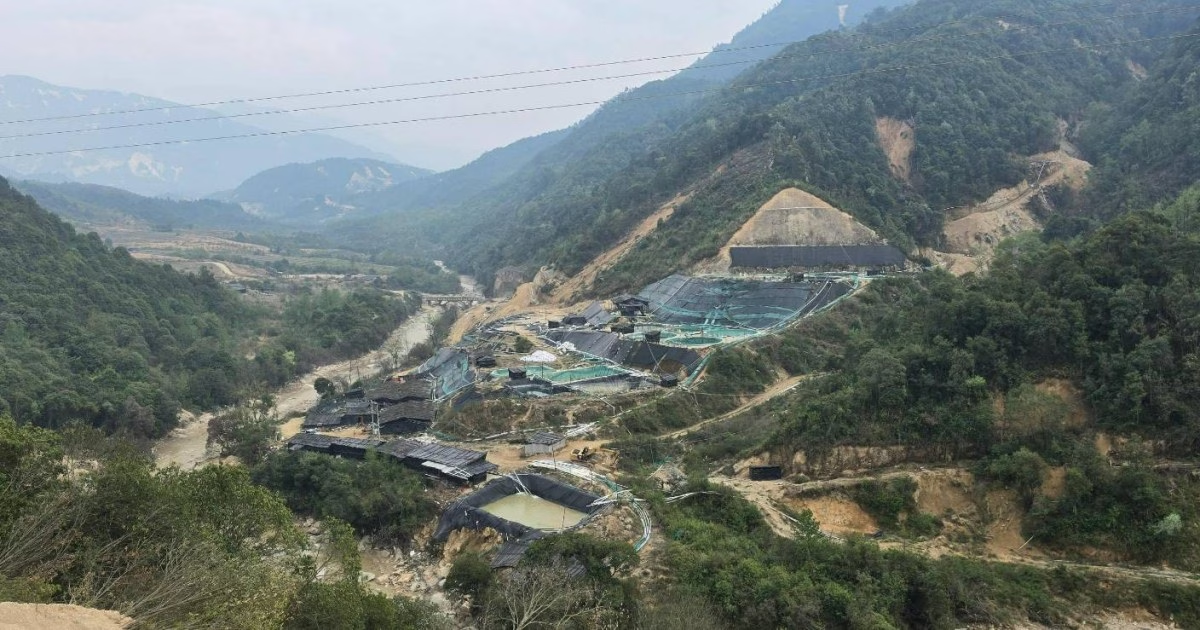Bangkok, Thailand – A significant increase in rare earth mining in rebel-held areas of Myanmar, supplying Chinese processing plants, is linked to dangerously high levels of heavy metals in Thai waterways, including the Mekong River. China plays a dominant role in refining rare earth metals, essential components from wind turbines to advanced missile systems, relying heavily on raw materials imported from Myanmar, where mining activities have led to severe environmental damage and harm to local communities.
Recent satellite imagery and water samples suggest that mining operations are expanding, alongside the environmental destruction they cause. Advocacy groups in Myanmar’s Shan state report a lack of protection for local people and indifference to environmental consequences affecting downstream regions, including northern Thailand’s Chiang Rai province.
In June, approximately 1,500 individuals in Chiang Rai province demonstrated, urging the governments of Thailand and China to press mining operators in Myanmar to cease polluting the rivers. Local residents first observed an unusual orange-yellow tint in the Kok River, a tributary of the Mekong River that enters Thailand from Myanmar, before the rainy season in May. Subsequent tests by Thai authorities have revealed arsenic and lead levels several times higher than the World Health Organization’s safety limits.
The contamination poses significant risks to crops, livestock, and local communities. It is notoriously toxic and has been linked to neurological disorders, organ failure, and cancer. Campaigners emphasize the urgent need for action to prevent long-term damage to both the environment and human health, highlighting concerns over the use of river water for rice paddies and the potential for waterborne diseases.
Expert analysis suggests a strong correlation between the toxic levels found in the Kok River and those previously seen in Kachin State, where rare earth mining has been widespread. The demand for rare earth minerals for green energy and military technology plays a significant role, but neither Myanmar, Laos, nor Thailand has the facilities to process raw ore efficiently, making China the primary beneficiary of Myanmar’s rare earth exports.
Thailand and Myanmar are working together with China to address this issue, but there is ongoing debate about the effectiveness of proposed solutions, such as building dams and weirs to filter pollutants from the rivers. Critics argue that such measures will only partly mitigate the problem and emphasize the need to tackle the environmental damage at its source, which is the rampant mining activities in Myanmar.
Source: https://www.aljazeera.com/news/2025/8/7/satellite-images-show-surge-in-rare-earth-mining-in-rebel-held-myanmar?traffic_source=rss








